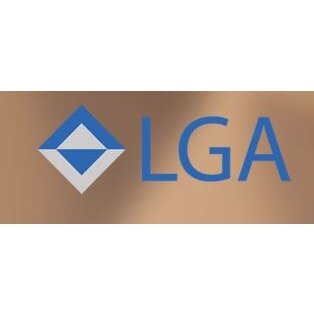Best Project Finance Lawyers in Funchal
Share your needs with us, get contacted by law firms.
Free. Takes 2 min.
List of the best lawyers in Funchal, Portugal
About Project Finance Law in Funchal, Portugal
Project finance refers to the funding of large infrastructure or industrial projects using a non-recourse or limited recourse financial structure. This means that project lenders rely primarily on the revenues generated by the project for repayment, rather than the general assets or creditworthiness of the project sponsors. In Funchal, Portugal, project finance is increasingly used for developments in energy, tourism, transportation, and public infrastructure, reflecting the region's strategic location and economic growth. The legal landscape here involves a combination of national Portuguese law, EU regulations, and local municipal guidelines, all of which shape the structure, risk allocation, contracts, and compliance needs of project finance transactions.
Why You May Need a Lawyer
Seeking legal help in project finance is essential for several reasons. First, structuring a project finance deal typically involves multiple parties, including lenders, sponsors, contractors, and government entities, all with legally binding interests. Legal professionals help ensure proper due diligence, draft and negotiate complex contracts, and navigate regulatory approvals. Additionally, lawyers are crucial when handling risk allocation, security packages, and dispute resolution. Common situations where you may need a lawyer in Funchal include securing permits, structuring Public-Private Partnerships (PPP), negotiating loan agreements, handling environmental licensing, and managing compliance with both local and EU regulations. Lawyers also help address issues related to tax optimization and cross-border financing arrangements.
Local Laws Overview
The legal framework for project finance in Funchal is shaped by several key components. Portuguese Civil Law governs contractual arrangements, while specific regulations apply to sectors such as energy, infrastructure, and transport. The Commercial Companies Code, Public Procurement Code, and Environmental Law are particularly relevant for project finance matters. Funchal, as part of the Autonomous Region of Madeira, may also have region-specific regulations, especially regarding public land use and tourism developments. EU law, such as the EU State Aid rules and procurement directives, also plays an important role in structuring and permitting large projects. Finally, local taxation regulations and incentives can influence project viability and structure.
Frequently Asked Questions
What types of projects are commonly financed through project finance in Funchal?
Typical projects include renewable energy installations, hotel and tourism developments, road and port infrastructure, and public utilities.
How is risk allocated in a project finance deal?
Risks are generally allocated among stakeholders through contracts, with lenders relying on project cash flows and security packages rather than sponsor guarantees.
What permits and approvals are required for project finance deals?
Depending on the sector, you may need construction permits, environmental approvals, municipal licenses, and sector-specific authorizations.
Does Funchal offer any incentives or tax benefits for project finance?
Yes, as part of Portugal and the Madeira Free Trade Zone, there may be tax incentives and benefits for certain types of projects, subject to eligibility criteria.
Can foreign investors participate in project finance deals in Funchal?
Yes, foreign investors are welcomed and often participate in partnership with local entities, especially in tourism and renewable energy projects.
What role do local authorities play in project finance?
Local authorities may be involved in granting land use rights, providing permits, and sometimes partnering on public infrastructure projects.
Which laws are most important for project finance transactions?
Portuguese Civil Law, the Commercial Companies Code, Public Procurement Law, Environmental Law, and relevant local regulations are critical.
How are disputes resolved in project finance projects?
Disputes are typically resolved via negotiation, mediation, or arbitration, often specified in the contracts. Local courts may have jurisdiction in some cases.
Are Public-Private Partnerships (PPPs) common in Funchal?
Yes, PPPs are increasingly common, especially in infrastructure and public services, and are subject to specific legal and procedural requirements.
Do lenders require collateral in project finance structures?
Generally, lenders require security interests in project assets, receivables, and sometimes step-in rights, rather than traditional corporate guarantees.
Additional Resources
To navigate project finance in Funchal, Portugal, you can turn to several helpful resources:
- Portuguese Securities Market Commission (CMVM) for regulatory guidance
- Regional Development Institute of Madeira (IDR) for regional incentives and support
- Bank of Portugal for financial regulation
- Madeira Free Trade Zone authorities for information on tax benefits
- Portuguese Chamber of Commerce and Industry for business networking and advice
- Local municipal offices in Funchal for permits and regulations
- Legal and financial advisors specializing in project finance
Next Steps
If you believe you require legal assistance with project finance in Funchal, start by identifying the scope and requirements of your project. Gather all relevant documentation, including business plans and initial agreements. Next, consult with a legal professional who specializes in project finance and has local experience. An initial consultation will help clarify legal obligations, regulatory requirements, and potential risks. Your lawyer can then guide you through structuring the deal, obtaining necessary permits, drafting contracts, and ensuring tax efficiency. It is often wise to engage legal counsel early in the process to maximize your project's chances of success and ensure full compliance with all local and national laws.
Lawzana helps you find the best lawyers and law firms in Funchal through a curated and pre-screened list of qualified legal professionals. Our platform offers rankings and detailed profiles of attorneys and law firms, allowing you to compare based on practice areas, including Project Finance, experience, and client feedback.
Each profile includes a description of the firm's areas of practice, client reviews, team members and partners, year of establishment, spoken languages, office locations, contact information, social media presence, and any published articles or resources. Most firms on our platform speak English and are experienced in both local and international legal matters.
Get a quote from top-rated law firms in Funchal, Portugal — quickly, securely, and without unnecessary hassle.
Disclaimer:
The information provided on this page is for general informational purposes only and does not constitute legal advice. While we strive to ensure the accuracy and relevance of the content, legal information may change over time, and interpretations of the law can vary. You should always consult with a qualified legal professional for advice specific to your situation.
We disclaim all liability for actions taken or not taken based on the content of this page. If you believe any information is incorrect or outdated, please contact us, and we will review and update it where appropriate.










